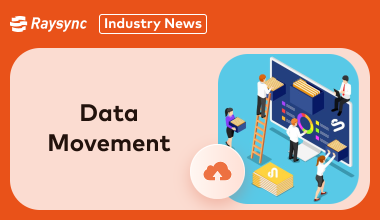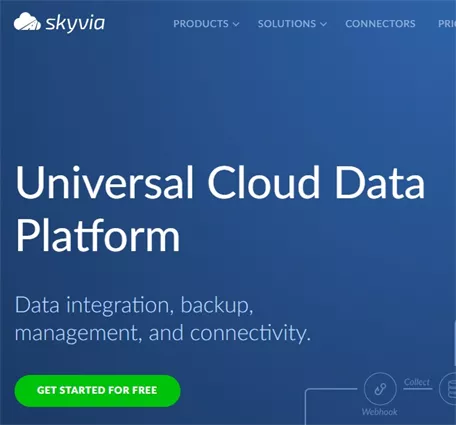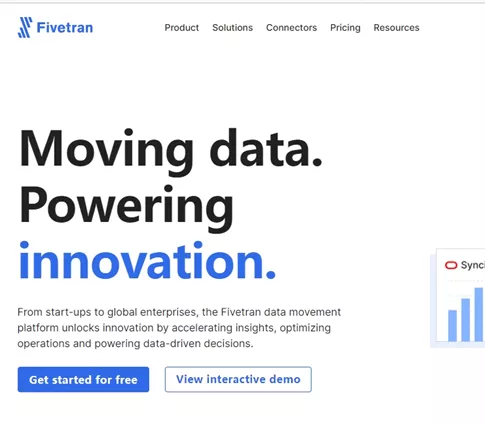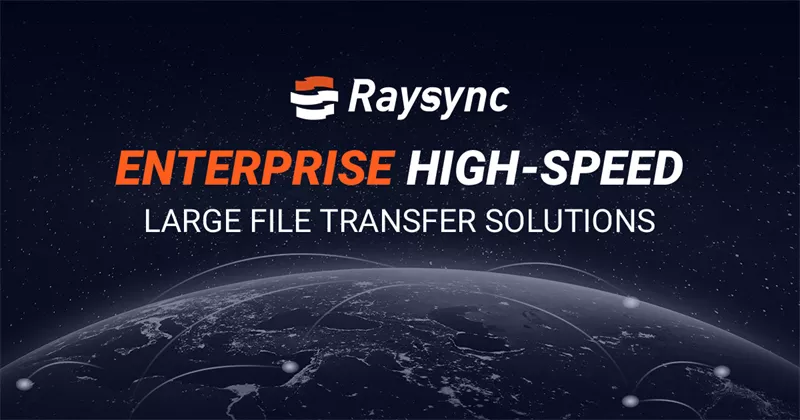The Future of Data Flow: How We Start Data Movement in 2024
In an era where data drives decisions, the movement of data becomes a critical factor for organizational success. As we step into 2024, understanding the nuances of data movement is paramount.

Whether it's about managing big data movement or ensuring seamless bulk data transfers, having the right strategies and tools in place can make all the difference. This blog delves into the future of data flow, exploring key methods and tools that will shape data movement in 2024.
Process of Big Data Movement You Should Know
Big data movement involves transferring massive datasets across various storage systems, networks, and applications. Here's a breakdown of the typical process:
- Data Acquisition: This is where you gather the data from various sources. This can involve ingesting data from social media feeds, sensor networks, log files, customer databases, and more.
- Data Ingestion: The acquired data needs to be prepared for processing and storage in the big data environment.
- Data Storage: Big data is often stored in distributed storage systems like Hadoop Distributed File System (HDFS) or cloud storage platforms.
- Data Movement within the Big Data Environment: Once stored, data movement might occur for various reasons.
- Data Delivery and Consumption: Finally, the processed data needs to be delivered to where it's needed.
7 Common Techniques of Data Movement
Effective data movement is crucial for various data management tasks. Here are 7 common techniques used to transfer data between systems:
- ETL (Extract, Transform, Load): A traditional method for data processing and movement.
- ELT (Extract, Load, Transform): A variation of ETL where transformation occurs after data is loaded.
- Data Replication: Copying data from a source to maintain consistency or for backups.
- Change Data Capture (CDC): Focusing on capturing only data modifications for efficient updates.
- Data Federation: Providing a unified view of data from various sources without physical movement.
- API-based Transfer: Using APIs for programmatic data access and movement between systems.
- Streaming Data Transfer: Continuously moving real-time data streams for processing and analysis.
5 Common Methods for Bulk Data Movement Nowadays
With the ever-growing volume of data, efficient movement of large datasets is critical for various tasks like data warehousing, analytics, and cloud storage. Here, we'll explore 5 common methods for handling bulk data movement in today's technological landscape:
Method 1: Using High-Speed Networks
The foundation for all data transfer, high-bandwidth networks like fiber optics are crucial for moving large datasets quickly. The speed is directly tied to the network capacity, making it a simple but resource-dependent approach.
Method 2: Using File Transfer Protocols (FTPs)
These established protocols offer a structured way to transfer data, ensuring its integrity and reliability. Popular options include FTP (File Transfer Protocol), SFTP (Secure File Transfer Protocol), and FTPS (FTP over SSL). While reliable, some FTP versions might not prioritize raw speed.
Method 3: Using Cloud Storage Services
Cloud platforms like Amazon S3, Microsoft Azure Blob Storage, and Google Cloud Storage are popular choices for cloud data movement due to their scalability and cost-effectiveness. Uploading and downloading data is often optimized for speed and integrates well with cloud-based data processing tools.
Method 4: Bulk Data Transfer Tool
Specialized software tools like Apache Flume, Apache Sqoop and Raysync are designed specifically for high-performance bulk data transfer. They leverage techniques like data compression, parallel transfers, and error correction to optimize the process for large datasets.
Method 5: High-Performance Computing (HPC) Systems
For massive datasets, HPC systems offer exceptional processing power and specialized data movement capabilities. These systems are often used in research institutions and large-scale data processing environments where speed and efficiency are paramount.
How to Choose the Best Method of Data Movement for Enterprise
Choosing the right method for data movement depends on several factors, including the volume of data, the speed of transfer required, and the criticality of data availability. Enterprises must assess their specific needs, considering aspects like:
- Data Volume: Larger volumes may benefit from batch processing or cloud storage solutions.
- Transfer Speed: Real-time applications require streamline data movement or replication.
- Data Criticality: Critical data may necessitate synchronous replication for immediate consistency.
- Cost: Cloud solutions can be more cost-effective but need to be evaluated against long-term data storage and transfer costs.
- Integration Needs: If data needs to be merged from multiple sources, data integration tools are crucial.
3 Big Data Movement Tools Recommended
Now that we've explored various data movement methods, let's examine 3 popular tools that can help you manage your data flow effectively.
1. Skyvia
Skyvia offers a cloud data integration platform that simplifies data movement and integration. With its robust ETL, ELT, and data synchronization capabilities, Skyvia supports a wide range of data sources, making it an excellent choice for businesses looking to streamline their data workflows.

2. Fivetran
Fivetran provides automated data integration, ensuring reliable data pipelines without the need for manual coding. Its ability to handle schema changes and deliver real-time data replication makes it ideal for organizations needing up-to-date analytics and reporting.

3. Raysync
Raysync specializes in high-speed large file transfer solutions, making it perfect for bulk data movement. Its advanced transfer protocols ensure fast, secure, and efficient data movement, particularly beneficial for industries dealing with massive data volumes like media and entertainment.

Final Words
As data becomes the lifeblood of success, mastering its movement is essential. This blog explored key methods and tools shaping the data flow landscape in 2024.
Identify your data volume, speed needs, and criticality to choose the optimal method. Leverage tools like Skyvia, Fivetran, and Raysync to streamline your data journey and unlock valuable insights!
You might also like

Industry news
June 5, 2024Full List of 9 FTP Alternatives for You
Are you tired of using FTP? So, are we since there has been no security of data transfers? That’s why, there have been many FTP Alternatives in this year and they work better than ever.

Industry news
July 28, 2020How to Ensure the Security of File Transfer in the Trade Industry?
Raysync Cloud builds a cross-border cloud storage file transfer management platform for trading companies to solve data security issues in the trading industry.

Industry news
July 7, 2020How to Realize the Fast and Efficient Transfer of Super-large Files?
At the same time, by adopting bank standard AES-256 encryption, Raysync provides security features to protect your files from internal and external risks. Choose Raysync Cloud, which makes it easy for you to transfer large files!